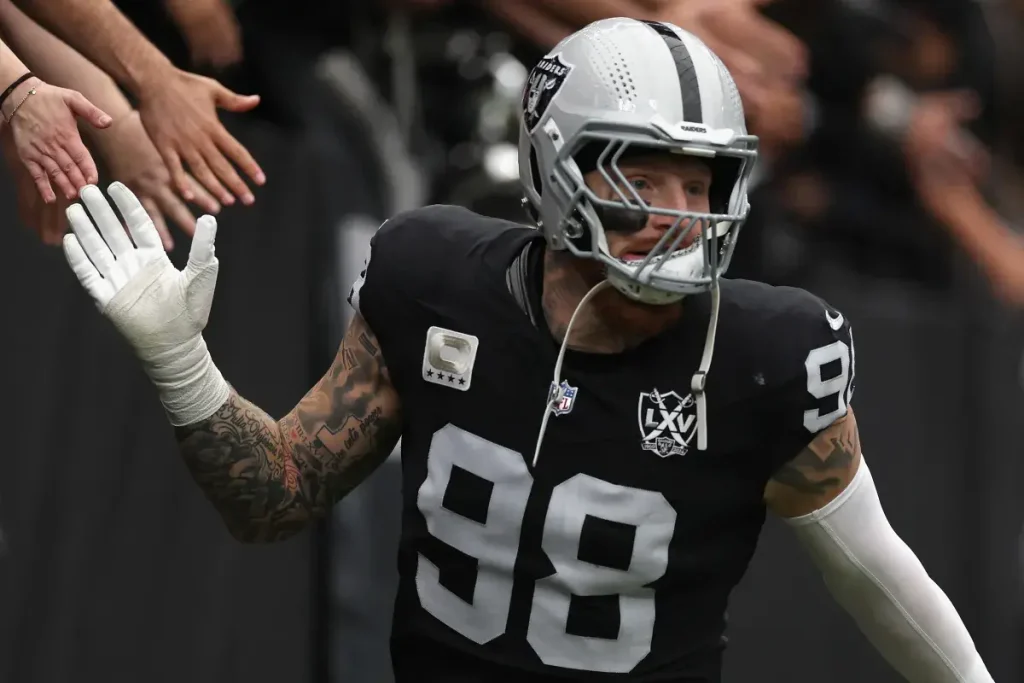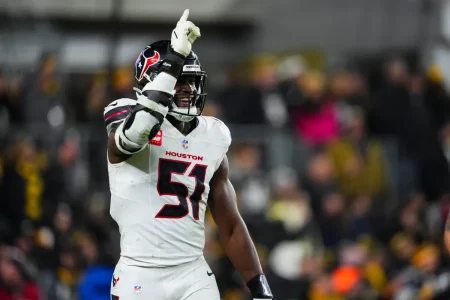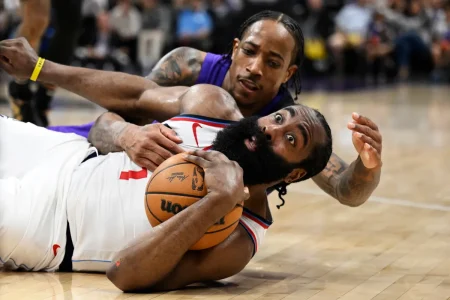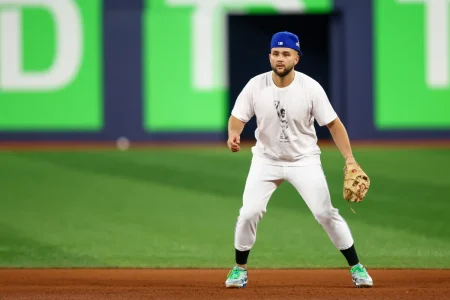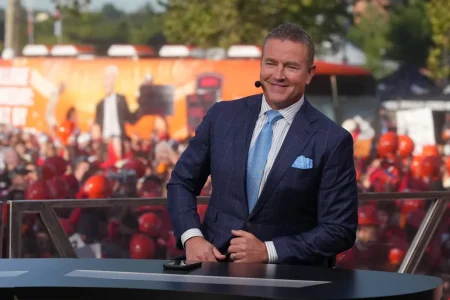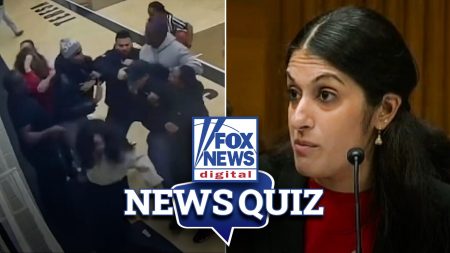Maxx Crosby and Aqib Talib’s Unexpected War of Words
An unexpected feud has erupted between Las Vegas Raiders defensive end Maxx Crosby and former NFL cornerback Aqib Talib, highlighting how quickly miscommunications can escalate in the world of sports commentary. The conflict began during a heated discussion on “The Arena,” where Talib defended Green Bay Packers edge rusher Micah Parsons against criticism about his run-stopping ability. During his passionate argument with Skip Bayless and former NFL lineman Richie Incognito, Talib made a comparison to Crosby, suggesting that when the Raiders surrender significant rushing yards, Crosby doesn’t face the same level of criticism as Parsons. This comparison, seemingly intended to make a broader point about defensive responsibilities, unexpectedly sparked tension between the two NFL figures.
When Crosby caught wind of Talib’s comments, he didn’t hold back his frustration. Appearing on “The Rush,” the Raiders star labeled Talib as “uneducated” and suggested that the former cornerback should review game footage and statistics before making such comparisons. Crosby’s response reflected the pride he takes in his run-stopping abilities, which have become a hallmark of his playing style throughout his career. The defensive end has consistently ranked among the league’s elite at stopping the run from his position, even earning the top spot among edge rushers in Pro Football Focus’s 2023 rankings. Crosby’s reaction demonstrates how professional athletes often feel personally attacked when their strengths are questioned or seemingly dismissed in media discussions, especially by former players who are expected to provide informed analysis.
Talib didn’t let Crosby’s comments go unanswered, responding with a clarification that maintained his respect for Crosby’s skills while addressing the tone of the response. “I didn’t say you ain’t stop the run,” Talib explained, emphasizing that his original point was about how team defensive failures aren’t solely blamed on individual players. “I was making a point that when your team gives up 150 (rushing yards), Skip don’t say, ‘You didn’t stop the run,’ because it’s not all on you. You did a great job stopping the run.” Despite delivering his response with a smile, Talib’s message carried clear undertones of displeasure with being called “uneducated,” as he cautioned, “Watch your tone, Maxx… I don’t really play like that. Watch your tone, fam.” This exchange reflects how even seemingly casual criticisms in sports media can become personal quickly, especially when professional reputations are involved.
The context behind this conflict showcases Crosby’s impressive career trajectory and why he might be particularly sensitive to criticisms of his run-stopping ability. Since entering the league as a fourth-round draft pick in 2019, Crosby has defied expectations to become one of the NFL’s premier defensive ends. The 28-year-old Raiders star has been consistently productive, with 37 tackles, five sacks, and an interception through the first nine games of the current season. His standout performance in 2023 represented his best campaign to date, during which he amassed 90 tackles, 23 tackles for loss, and 14.5 sacks. Currently pursuing his fifth consecutive Pro Bowl selection, Crosby has transformed from an underrated draft prospect to one of the most respected defensive players in the league—making him understandably protective of his hard-earned reputation.
This public disagreement between Crosby and Talib illustrates a common phenomenon in sports media, where nuanced discussions can be reduced to sound bites that miss the broader context. Talib’s original point appears to have been about the inconsistent standards applied to different players rather than a direct criticism of Crosby’s abilities. However, when Crosby heard the comments without the full context of the discussion, his interpretation led to a defensive response that escalated the situation. This misunderstanding demonstrates how the fast-paced nature of sports media, with its emphasis on provocative segments and quick reactions, can sometimes create conflicts between current and former players who might otherwise respect each other’s perspectives and accomplishments.
The Crosby-Talib dispute also highlights the evolving relationship between active players and media personalities, particularly former players who have transitioned to commentary roles. As more NFL veterans like Talib move into broadcasting, they bring valuable insider perspectives but also face the challenge of analyzing and sometimes criticizing their former peers and current players. This dynamic creates unique tensions, as active players expect former athletes to provide more nuanced and empathetic analysis than traditional media figures. When these expectations aren’t met—or appear not to be met due to misunderstandings or selective clips—conflicts like this one emerge. As both Crosby and Talib continue in their respective careers, this incident serves as a reminder of the communication challenges that exist at the intersection of sports performance and sports commentary, where professional pride, media narratives, and personal relationships frequently collide in the public eye.



